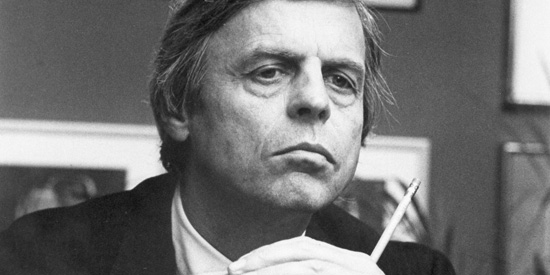David Dewese and Jerry James, the friends that make records as the Foxymorons, met at church camp when they were in high school. They discovered they had an affinity for noisy, primitive rock bands. Since they both played rudimentary guitar, they thought about starting a band. Eventually, the duo honed its chops and began writing and recording. Although they’d never played live, their debut album, Calcutta, got stellar reviews in Pitchfork and Paste. As soon as it was out, Dewese moved to Nashville to play in an alt-country band. James stayed in Texas. They’ve maintained a long-distance collaboration ever since. New LP Fake Yoga has elements drawn from country and pop music, including Beach Boys-flavored harmonies, but the album is dominated by their distorted, almost metallic guitar work. James and Dewese will be guest editing magnetmagazine.com all week. Read our new feature on them.

James: The late George Plimpton is something of a personal hero of mine. Here’s a word I rarely never use: joie de vivre. The word seems like it was made just for him. Judging by essays, interviews, speeches, documentary appearances and an oral biography I devoured called George, Being George, Plimpton’s life seemed to radiate a certain kind of effortless joy. A quick biographical sketch: Mayflower descendant; Manhattan’s Upper East Side; Exeter (from which he was expelled); Harvard; Paris; co-founder of The Paris Review; Hemingway interviewer; party host; participatory journalist; friend to RFK and Muhammad Ali; fireworks enthusiast. There are some people who impact you through their writing or music or leadership or visual art. And then there are those who are instructive just by being themselves. They show you how to live—in Plimpton’s case, with enthusiasm and effortless style. I always loved that George Plimpton founded The Paris Review as a labor of love. (Why else pursue something like that: a literary quarterly, the very nature of which means it will draw only a relatively modest readership? In some ways it reminds me of—ahem—making quirky rock records.) The Paris Review is beautiful. Sure, it contains great fiction, poetry and interviews. But the covers! Some are whimsical, some are serious, some have squiggly lines, some are abstract, some contain photographs. But every one is special.
Video after the jump.






